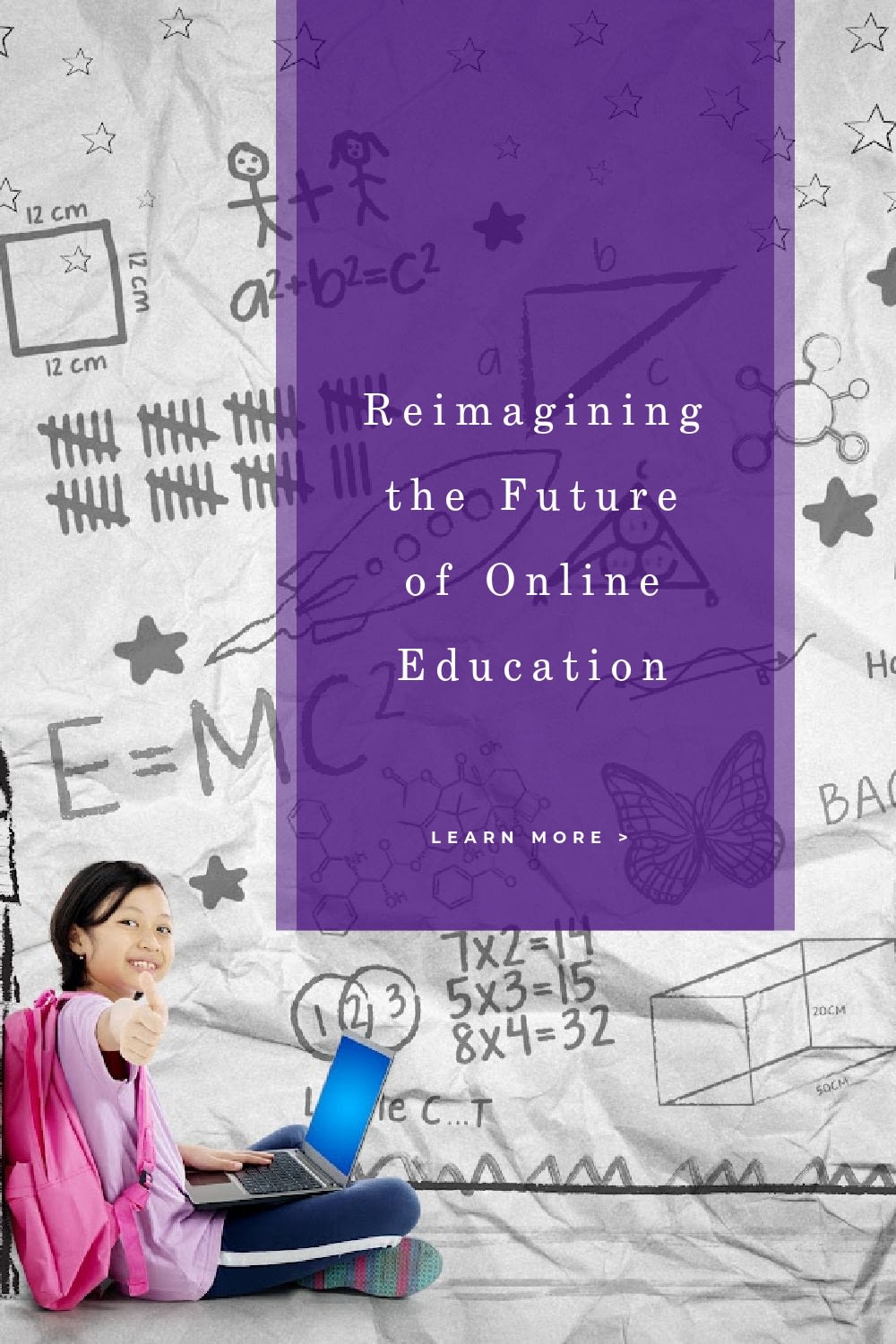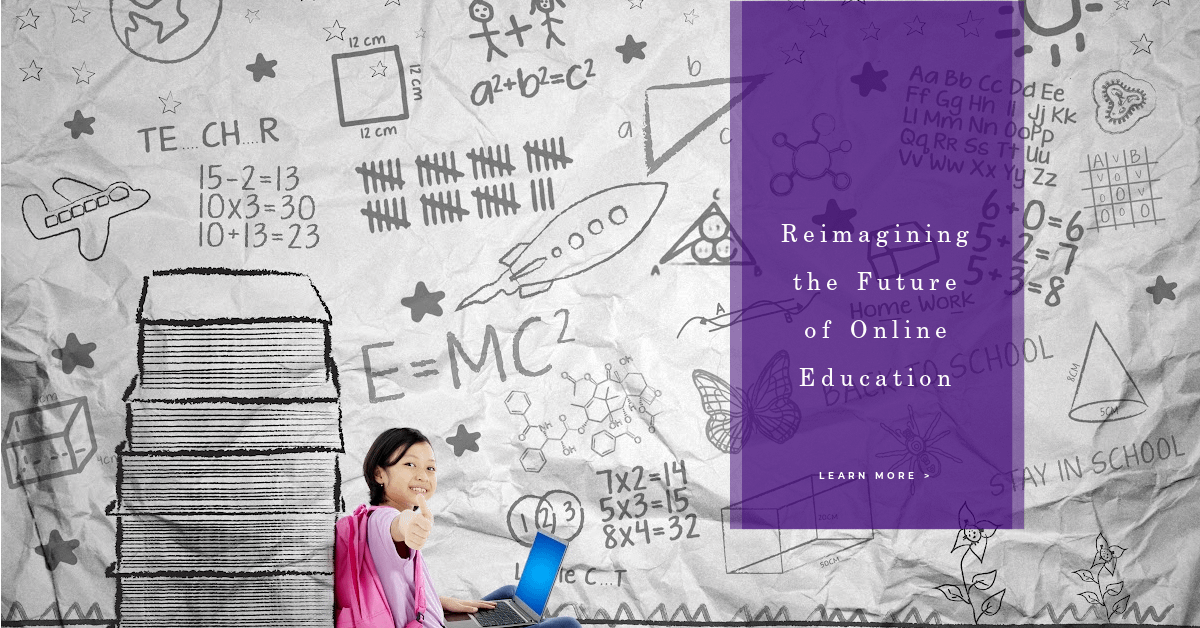This post may contain a affiliate links which means we may gain a percentage of your purchases at no cost to you. We only suggest products and services that we have used and we feel is a valuable resource. We may also from time write a sponosred post for brands that we love or feel they provide value and are worth buying and promoting. Please read our disclaimer for more info | Edited by By Pro Writing Aid. Pro Writing Aid is your little writing buddy that helps you become a better writer. You can check it out my affiliate link here.: PRO WRITING AID
Reimagining the Future of Online Education: An Engaging Exploration
Pathways to Success Series
Content Level
Excerpt:
Online education, once a supplementary form of learning, has catapulted to the forefront of global education, offering unprecedented flexibility and access to knowledge. Its continuous evolution promises a future where learning is unbound by physical constraints, tailored to individual needs, and enriched by technological advancements.
Reimagining the Future of Online Education: An Engaging Exploration
As technology rapidly evolves, it presents a unique opportunity to transform traditional education through digital platforms and tools. This transformation has shifted learning paradigms globally, making education more accessible and democratizing knowledge like never before
As technology rapidly evolves, it presents a unique opportunity to transform traditional education through digital platforms and tools. This transformation has shifted learning paradigms globally, making education more accessible and democratizing knowledge like never before.
Current State of Online Education
Online education has revolutionized traditional teaching methods by providing flexible, tailored, and user-friendly learning experiences. It encompasses:
- Synchronous Learning: Live interactions that simulate real-time classroom experiences
- Asynchronous Learning: Allows students to learn at their own pace, accessing resources whenever convenient
- Blended Learning: Combines traditional classroom methods with digital interactions for a comprehensive learning experience
Popular platforms include Learning Management Systems (LMS) like Blackboard and Canvas and Massive Open Online Courses (MOOCs) such as Coursera and edX, with tools like Google Classroom and Zoom facilitating live online classes.
Despite its benefits—flexibility, cost-effectiveness, and access to diverse courses—online education faces challenges such as student engagement, preparation of online resources, and the lack of face-to-face interaction.
Technologies Transforming Online Education
Progressive AI Tools for Custom Learning:
- Adaptive Learning Systems: These AI-driven platforms customize learning materials based on each student’s performance, adjusting content complexity to maintain optimal engagement.
- Personalized Recommendations: AI algorithms suggest resources tailored to students’ interests and learning histories, enhancing engagement.
- Real-time Feedback: Provides instant feedback on assignments, identifying areas of improvement.
Interactive Content Creation:
- Gamification: Integrating game elements like points and badges to make learning more fun and engaging.
- Virtual Labs and Simulations: Allow hands-on experience in subjects like science and engineering without physical lab requirements.
- Augmented and Virtual Reality (AR/VR): Offers immersive experiences that can transport students to historical sites or distant planets.
- Interactive Videos: Videos with embedded quizzes and clickable links ensure active participation and deeper learning.
These innovative methods enrich the learning experience, making education not only more engaging but also more effective.
The Impact of the Pandemic on Online Education
The COVID-19 pandemic accelerated the adoption of online education, pushing institutions to shift from traditional classrooms to virtual platforms overnight. This rapid transition highlighted the digital divide, with significant challenges in connectivity and access, particularly for students in remote or underserved areas.
However, the shift also demonstrated the potential of online learning to provide flexible education solutions quickly and at scale, suggesting a lasting impact on how education is delivered worldwide.
Future Trends in Online Education
Hybrid Learning Models: Blend online and in-person education, providing flexibility and personalized learning experiences.
Increased Use of AI: From automating administrative tasks to providing personalized learning paths, AI is set to influence online education profoundly.
Focus on Soft Skills: Online platforms are increasingly incorporating training for soft skills like critical thinking and collaboration, which are highly valued in today’s job market.
Policy and Regulation Influences
As online education evolves, so must the policies and regulations governing it. Future changes may include:
- Intellectual Property: Adapting laws to protect digital content while promoting innovation and access.
- Quality Assurance: Ensuring online programs meet educational standards to maintain credibility and effectiveness.
- Accessibility: Policies to ensure all students have access to online learning, regardless of their socioeconomic status or geographical location.
Engaging with the Future
This exploration into the future of online education is informative and engaging, revealing the depth and breadth of how technology can enhance learning. By understanding these developments, educators, policymakers, and students can better prepare for a future where education is more inclusive, effective, and aligned with the needs of a digital society.
Summary
Reimagining the Future of Online Education: An Engaging Exploration” in the Pathways to Success Series delves deeply into the transformative role of technology in education. This comprehensive guide explores the current landscape of online learning, highlighting the flexibility and personalized learning experiences afforded by synchronous, asynchronous, and blended formats. It critically examines the influence of cutting-edge technologies such as AI-driven adaptive systems, virtual and augmented reality, and interactive content that make learning more engaging and effective.
The article also assesses the significant impact of the COVID-19 pandemic, which accelerated the shift towards online platforms, revealing both opportunities and challenges within digital education frameworks. Looking forward, it discusses emerging trends like hybrid learning models and the integration of soft skills training in online curricula, underscoring the importance of adapting educational policies to support these innovations.
By offering a vision of a future where education is unbound by physical constraints and tailored to individual needs, the guide encourages educators, policymakers, and students to embrace the continuous evolution of learning technologies. This forward-looking perspective is designed to equip stakeholders with the insights needed to navigate and shape the future of education in an increasingly digital world.
BEFORE YOU CLICK TO THE NEXT ARTICLE, PLEASE LEAVE YOUR THOUGHTS BELOW
We invite you to scroll down and leave your mark in the comments section. Whether it’s a thought that sparked, a reaction that stirred, a suggestion for improvement, or an innovative idea you’re burning to share, your input is the key that unlocks our collective potential. Dive into the dialogue below and let your voice be heard.
#ShareYourInsightBelow
Reimagining the Future of Online Education: An Engaging Exploration
















